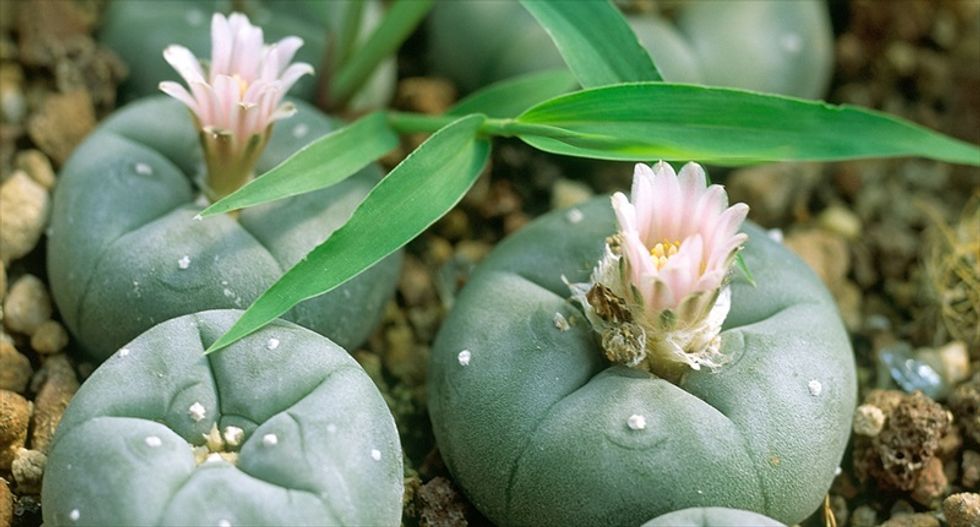
Members of the Tahteya Topa Native American Church of Utah renewed a long-standing battle against a state ban on using peyote during their ceremonies, saying it violates their freedom of religion, KSTU-TV reported.
"People say it's a hallucinogen, which it's not," church member David Hamblin said during a protest in Salt Lake City on Thursday. "It's a plant portal to the spirit world. If you believe in the reality of the spirit world, what you see is real, whether it's negative or positive."
However, the government does in fact classify the small cactus, which contains mescaline, as a hallucinogen under Schedule I of the Controlled Substances Act, while pointing out its significance to both tribes in the southwestern US and northern Mexico.
Hamblin said he was first arrested in 2000 for peyote possession along with James "Flaming Eagle" and Linda Mooney. Four years after the arrest, the Utah Supreme Court ruled that the Mooneys' conviction be thrown out because they had the right to use and distribute peyote to non-Native members for church ceremonies. The church's name translates to "Four Winds."
As the Deseret News reported two years later, Native American leaders lent their support behind state House Bill 60, which mandated that use of the drug be restricted to members of federally-recognized tribes.
However, Hamblin opposed the law on Thursday, as well as some states' requirements that peyote users be at least "25 percent" Native American.
"What they're really doing is trying to kill a religion by saying you have to have a certain blood," he said. "Religion is not about race."
The church's "religious liberty" argument comes amid attempts by Christian conservatives to deny services to same-sex couples using the same rationale, particularly since the Supreme Court decision earlier this year legalizing marriage equality nationally.



